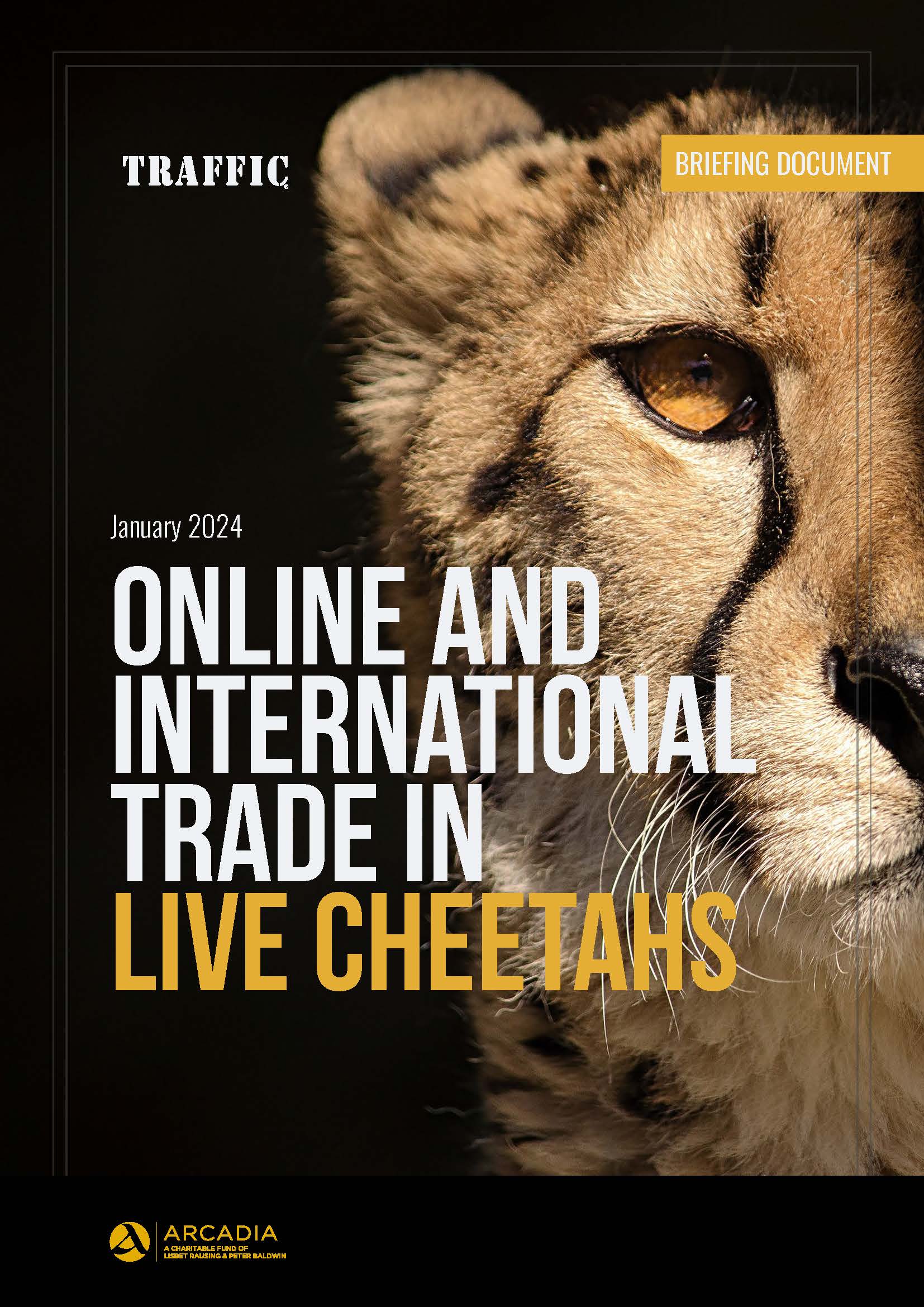Social media stimulating trade in cheetahs as pets, says new data
70% of the burgeoning online trade in Cheetahs is happening on social media.
70% of the burgeoning online trade in Cheetahs is happening on social media. Research by TRAFFIC and shows a growing online trend in illegal trade, further pressuring an already at-risk iconic big cat. Report authors are calling for greater vigilance and action taken against those selling live species like Cheetah online.
Cheetahs Acinonyx jubatus are facing threats of climate change, habitat loss, and human-wildlife conflict. With their adult speeds of up to 70mph/120kph, it’s the slower wild cubs that are being illegally caught to be sold online, mainly as exotic pets.
State of wild cheetahs
There are only an estimated 6,500 adults left in the wild.
The five cheetah subspecies are now only found in 9% of their historical wild range. The species is classified on the IUCN Red List of Threatened SpeciesTM as Vulnerable to extinction and as a CITES Appendix I listed species, the international commercial trade in Acinonyx jubatus is prohibited.
“Cheetahs already face multiple threats to their survival in the wild, including habitat loss, prey depletion, low genetic diversity, and human-wildlife conflict. It is particularly concerning that an emerging online trade may place further pressure on wild cheetah populations,” says Oliver Wright, TRAFFIC Project Support Officer.
Data shows the telltale markings of growing online illegal trade
A new TRAFFIC online survey building on previous research unearths internet users illegally trading in live cheetahs and those who flaunt their ownership of them as pets.
A total of 222 unique URLs were found over just six months, revealing alarming trends in the online trade of live cheetahs.
Nearly half of these URLs clearly indicated an intention to trade in live cheetahs, and 70% of all URLs were found on social media platforms. 26% of links were found on e-commerce platforms and dedicated websites, with others discovered in online forums or news articles.
Traders appear to be putting more effort into staying anonymous by creating multiple user profiles, using stronger privacy settings, and carefully avoiding any potentially incriminating ‘transactional’ language.
This new research has revealed that several users previously identified as online cheetah traders have changed the security and privacy settings of their online profiles to restrict public access and evade detection. Some avoid using sales language, just posting pictures of the cheetahs for sale.
Concerns of pet trade converging with trade in other wild species
The report outlines the top five countries with URLs flaunting cheetahs as pets – the United Arab Emirates, Saudia Arabia, Kuwait, South Africa, and the United States of America.
Of great concern is the fact that 64% of the URLs surveyed also advertised other potentially illegal exotic pets, including other big cats, reptiles, birds, and primates.
This highlights the urgent need for comprehensive measures to combat the broader issue of wild species trafficking.
Where in the world?
Unravelling both legal and illegal trade flows of live cheetahs is key to understanding where action needs to be taken. According to the CITES Trade Database:
South Africa, China and the United States of America were found to be major importers of live cheetahs from captive-bred populations, primarily destined for zoos.
South Africa, Namibia, and Zimbabwe were found to be major range state exporters of live cheetahs, again with descriptions of captive-bred individuals for zoos, but some were also found to be sourced from wild populations.
Comparisons between TRAFFIC research and CITES Trade data revealed discrepancies for Kuwait, Saudi Arabia, and Yemen that point towards illegal imports or unregulated captive breeding – both significant threats to the species’ longevity.
The release of this Briefing follows the First Global Cheetah Summit held in Addis Ababa, Ethiopia, in January 2024, which highlighted growing threats to wild cheetah populations.
TRAFFIC staff presented this research at the 2024 Global Cheetah Summit in Addis Ababa. The Summit brought together cheetah conservation experts from around the world, and the sharing of this research stimulated important discussions on how to tackle illegal online trade and safeguard wild cheetah populations.
“The Global Cheetah Summit was a great opportunity to showcase this important research and discuss solutions to the online cheetah trafficking issue with experts from the global cheetah conservation community,” concludes Oliver Wright.
Press release distributed by Pressat on behalf of TRAFFIC, on Friday 1 March, 2024. For more information subscribe and follow https://pressat.co.uk/
Social Media Online Trade Ecommerce E-Commerce Cheetah Live Cheetah Threatened Species CITES Red List Vulnerable Pet Trade Pets Charities & non-profits Consumer Technology Environment & Nature Farming & Animals Government Media & Marketing
You just read:
Social media stimulating trade in cheetahs as pets, says new data
News from this source:



